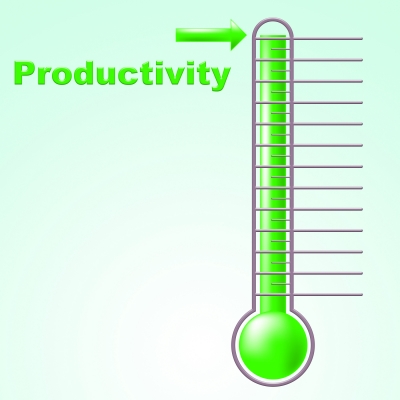Startup Employee Performance Appraisal

A Startup employee performance appraisal is not given the importance it deserves. Startups may be by a single individual or a team of 2-3 partners. The focus of any startup in the initial phase is to test the idea for market acceptance and gain traction.
A startup with 2-3 partners may not hire any employee till they reach a particular sales volume or they feel confident about generating revenue. The various jobs may be divided among the partners.
A solopreneur may have a very small team of 2-3 employees who may join right from the beginning. They work very closely and the owner interacts almost on a daily (hourly?) basis. The employees may generate leads and the owner may close the deals. This closeness may lead to the belief that there is no need to have any formal system or process for performance appraisal. This honest wrong belief is likely to result in dissatisfaction, when the time comes to reward employees or as the organization grows and owner’s interaction level comes down due work pressure.


Image Source: Stuart Miles
Startup Employee Performance Appraisal- Definition
Performance appraisal
is a systematic process that evaluates an individual employee’s performance in
terms of his productivity with respect to the pre-determined set of objectives.
Startup Employee Performance Appraisal- Objectives

This gives the employee an opportunity to reflect on the duties that
were entrusted to him, as it involves receiving feedback regarding his
performance. It also evaluates the individual’s attitude, personality, behavior
and stability in his job profile. There are various applications of appraisals
like compensation, performance improvement, promotion, termination, test
validation, and much more. Various performance appraisal methods are followed
by organizations to ensure fair appraisals to their employees. Appraisals
facilitate communication between the management and the employees, which helps
in conveying the expectations of the management to the employee and vice versa.
In case of startups, it has been observed that shorter cycles are preferred, so
that they can motivate their employees more frequently, to
perform better. It can be quarterly/half yearly /annual.
Startup Employee Performance Appraisal- Target
SMART is a best practice framework for setting goals. A SMART goal should
be specific, measurable, achievable, realistic and time-bound.
Startup Employee Performance Appraisal- Parameters
The twin aspects of measurements are ability to achieve targets and soft skills. The targets can be set and easily measured. However, having a committed employee is critical. The following seven parameters will help in developing a committed team. The review can be done monthly in the beginning and after about a year this can be done quarterly.
The goals can be set for the entire team and the individual’s soft skills should also be measured
Soft Skills
1.
Attitude/Effort:
Amount
of effort that the employee puts into their duties, and the extent to which he maintains
a positive work attitude while performing these duties. Poor Moderate Excellent
1 2 3 4 5
Fails to meet deadlines Meets
deadlines or is early Refuses to take on extra duties Team
player/assists others Must be
told what to do Self-starter When own work is done, does nothing When own work
is done, asks for more Complains
about job duties Takes
initiative Enthusiastic
about job
2. Works Independently:
The ability to work conscientiously to complete tasks with minimum supervision.
Poor Moderate Excellent
1 2 3 4 5
Fails to Meet expected work output Completes assignments on time
Incomplete tasks Tasks are fully completed
Needs constant supervision/help Works well independently
3. Adaptability: .
Poor Moderate Excellent
1 2 3 4 5
Cannot accept criticism Willingly accepts criticism and
Does not respond to feedback modifies behavior/task accordingly
Resists change to work duties Willingly accommodates new
directions/tasks
4.. Interpersonal Skills: Degree to which an employee gets along with others (co-workers, supervisor, clients).
Poor Moderate Excellent
1 2 3 4 5
Ineffective on work-team Maintains effective and cooperative
Receives complaints relationships with co-workers
Avoids working with others Initiates interactions with others
No complaints/receives compliments
5. Verbal Communication: The ability to communicate orally.
Poor Moderate Excellent
1 2 3 4 5
Poor/ineffective verbal skills Excellent verbal skills
Lack of eye contact Clear voice
6. Reliability: Extent to which the employee can be counted on to be in attendance and complete tasks in a timely fashion.
Poor Moderate Excellent
1 2 3 4 5
Chronically late for work Arrives on time or early
Fails to show up for work Rarely absent
Absence planned/non-disruptive
7. Ability to learn: The extent to which the employee is able to understand/grasp new ideas & instructions.
Poor Moderate Excellent
1 2 3 4 5
Not interested in learning new tasks Actively seeks out information
Has not improved in job performance Continually improves in job performance
A score of thirty is excellent and employees who score less than 20 in two consecutive
reviews to be counselled. If these employees do not show improvement they are
required to leave.
How do I even begin performance reviews at a startup?
To quote One-Minute Manager, “Rather than catch people doing something wrong, it’s most important to catch your teammate doing something right!” So we improved it, and on day one of that change, 50% of people gave positive spot feedback. It immediately elevated our morale with a sense of celebration!
https://medium.com/@Classkick/how-do-i-even-begin-performance-reviews-at-a-startup-5dc22d58f3aa
Startup Employee Performance Appraisal- Conclusion

Managing performance is absolutely critical. In large companies, under performers may disrupt goal attainment for their specific areas. But in a startup, an under performer could throw the entire company off track. Managing employee performance appraisal may appear challenging. The startup the entrepreneurs should devote time for performance appraisal and feed back to employees

